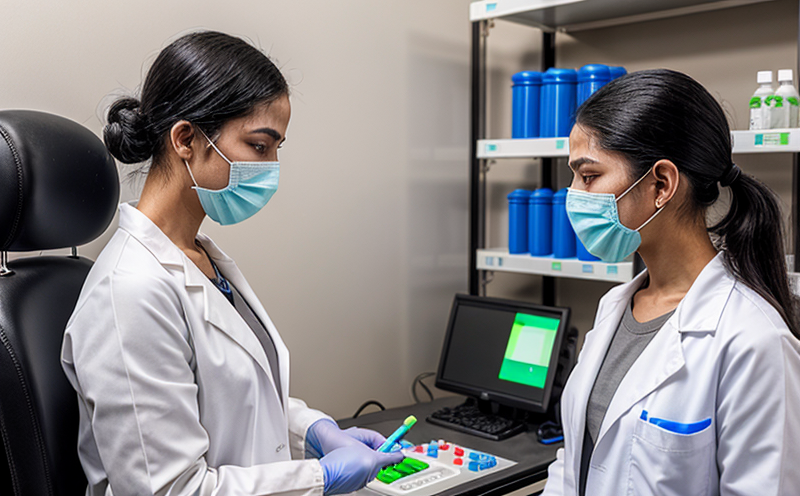In Vivo Host Mediated Assay Testing
In vivo host mediated assay testing is a critical component of pharmaceutical development and safety assessment. This method evaluates potential genotoxic, carcinogenic, or mutagenic effects by observing how external agents interact with the biological system. It leverages whole animal models to provide insights into mechanisms that may not be apparent through in vitro methods alone.
The core principle behind host mediated assays is understanding the role of specific proteins and enzymes within the cellular machinery when exposed to test substances. These interactions can lead to DNA damage, which might eventually result in cancer or other genetic disorders if left unchecked. By utilizing intact organisms rather than isolated cell cultures, these tests offer a more comprehensive evaluation of compound safety.
At Eurolab, our expertise lies in conducting rigorous in vivo studies designed to meet the highest regulatory standards. Our team adheres strictly to guidelines set forth by organizations such as OECD and ICH (International Conference on Harmonization), ensuring that all results are robust enough for submission to authorities like FDA or EMA.
The process typically involves multiple phases where different species are used depending on the type of toxicity being investigated. For genotoxicity assessments, mice often serve as the primary animal model due to their rapid reproduction rate and genetic diversity; however, other models may also be employed based on specific requirements outlined by regulatory bodies.
Once selected, appropriate test subjects undergo rigorous treatment protocols which could include administration via oral route, intravenous injection or subcutaneous implantation. Tissue samples are then collected at various time points post-treatment for detailed analysis using advanced techniques like flow cytometry or PCR (Polymerase Chain Reaction).
The comprehensive nature of in vivo host mediated assays makes them indispensable tools during early stages of drug discovery when identifying promising candidates and eliminating those likely to cause adverse reactions. Additionally, they play a crucial role late-stage development ensuring that any newly synthesized molecule meets stringent safety criteria before reaching market.
- Genotoxicity
- Carcinogenicity
- Mutagenicity
- Protein-Protein Interactions
- DNA Repair Mechanisms
- Cell Cycle Regulation
Industry Applications
In vivo host mediated assays find application across various sectors including pharmaceuticals, cosmetics, and biotechnology. They are particularly valuable in evaluating new chemical entities (NCEs) before they enter clinical trials.
- Evaluation of NCEs for potential genotoxicity
- Assessment of cosmetic ingredients for carcinogenic properties
- Detection of mutagenic effects in genetically modified organisms (GMOs)
- Investigation into the impact of environmental pollutants on human health
Eurolab Advantages
At Eurolab, we pride ourselves on providing unparalleled quality assurance through our state-of-the-art facilities and highly qualified personnel. Our commitment to excellence ensures that every assay conducted adheres meticulously to international standards.
- Expertise in regulatory compliance
- Use of advanced technologies for precise measurements
- Dedicated customer service supporting all project needs
- Comprehensive documentation and reporting
Customer Impact and Satisfaction
We strive to exceed expectations by delivering reliable data that can be confidently used in decision-making processes. Our clients benefit from reduced development times, lower costs associated with failed trials, and increased confidence in product safety.
Positive feedback from satisfied customers highlights our commitment to providing accurate, timely results which contribute significantly towards successful product launches.





